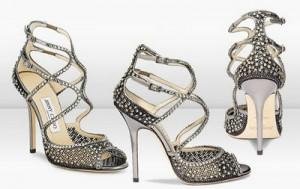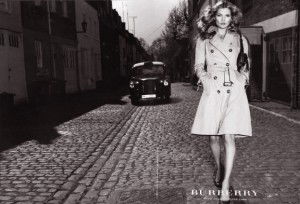Luxury brands cannot be defined objectively. What is luxury to one could be completely ordinary for another. Knowing the client’s profile, life style, social, personal and business lives becomes necessary when suggesting luxury brands to your clients.
But, first things first.
What Makes a Luxury Brand?
Can a product that is the rage in all the right circles this season be termed a luxury brand? Unfortunately, no. It takes more than just being a fashion statement to be called a luxury brand.
Aesthetics: The brand must be strong in its aesthetics. Its creative quotient must be high. Luxury brands sustain their image by their very exclusivity. It means they need to constantly reinvent themselves to introduce new designs and models that others can only dream of.
Craftsmanship: Secondly, the craftsmanship must be near perfect. Whether we refer to a product or a service, the finish and the service is at the very high-end. Even minor discrepancies in finish are enough to prevent a product from entering the luxury brand circle.
 Classic: In addition, the brand must have longevity that converts it into a classic. While high fashion might determine what is worn this season, a classic is one that is durable across many seasons and many years. Don’t be quick to label the new product on the block as a luxury brand.
Classic: In addition, the brand must have longevity that converts it into a classic. While high fashion might determine what is worn this season, a classic is one that is durable across many seasons and many years. Don’t be quick to label the new product on the block as a luxury brand.
Point of Sale: The place of sale becomes a critical determining factor. Luxury brands are sold through exclusive stores. They do not share their space with products that lack the same level of exclusivity. Many mass market products eventually try to enter the luxury business. Be cautious about labeling them as luxury brands.
What Products Constitute Luxury Brands?
The above information helps you judge whether a product is in fact a luxury brand. But, you need to know the luxury categories too in your function as a luxury management professional.
While we are familiar with luxury clothing and accessories, luxury brands span a range that is far wider than these. Ranging from automobiles to hotels and tourism, even private banking comes under the luxury umbrella.
Art: Depending on the wealth and life style of your clientele, they could be investing in art. You are not expected to be an expert in judging art, but basic knowledge allows you to be part of the informed circle for the client.
 Clothing and Accessories: High fashion must be part of your knowledge base. But that’s just the beginning. Knowing the names of leading fashion houses and their collections is critical. There are times when your clients have in-depth information about past collections of certain fashion houses. Knowing the history of fashion of each of these houses can strengthen your ability to advise clients. Know your Burberrys, Chanel, Christian Dior, Yves Saint Laurent, Givenchy, Hermes and more.
Clothing and Accessories: High fashion must be part of your knowledge base. But that’s just the beginning. Knowing the names of leading fashion houses and their collections is critical. There are times when your clients have in-depth information about past collections of certain fashion houses. Knowing the history of fashion of each of these houses can strengthen your ability to advise clients. Know your Burberrys, Chanel, Christian Dior, Yves Saint Laurent, Givenchy, Hermes and more.
Food & Beverage: Exclusive restaurants are as much a part of the luxury brand business as clothing. To know what the client should wear at a particular occasion, it is necessary for you to know not just the occasion, but also the venue itself. The latter gives you an idea of the appropriate clothing and accessories. Knowing your wines is like knowing art, a necessary element in the luxury business.
Automobiles: Most of us know that a Porsche and a Maserati is at the upper end. But your knowledge needs to be wider and more in-depth than that since your clientele is likely to be able to buy the car of their liking. Now, that encompasses a whole range of luxury automobiles. It pays to know the brands, the most popular models as well as the latest models unveiled by these auto-makers.
 Luxury Hotels: Luxury hotels are the ultimate in travel luxury. If you need to judge whether a hotel falls into the category, understand the hotel’s service, the design and décor of the place, the atmosphere and quality of service.
Luxury Hotels: Luxury hotels are the ultimate in travel luxury. If you need to judge whether a hotel falls into the category, understand the hotel’s service, the design and décor of the place, the atmosphere and quality of service.
Luxury Tourism: Luxury cruise and tourism is an essential element of your knowledge. Helping a client pick her clothing, accessories and other travel luxuries depends on the destinations, the customs of the place and the objective of the travel – whether business or vacation. Learn these beforehand and study the destinations and style of travel before giving your advice.
Private Banking: Private banking is yet another luxury service. It does not come under the purview your services as a luxury management professional, but it pays to know the kind of luxury your client expects.
In short, while the luxury business may seem like a niche business, it is wide in nature and requires you to learn the brands and the categories, in addition to your client’s lifestyle and preference.
